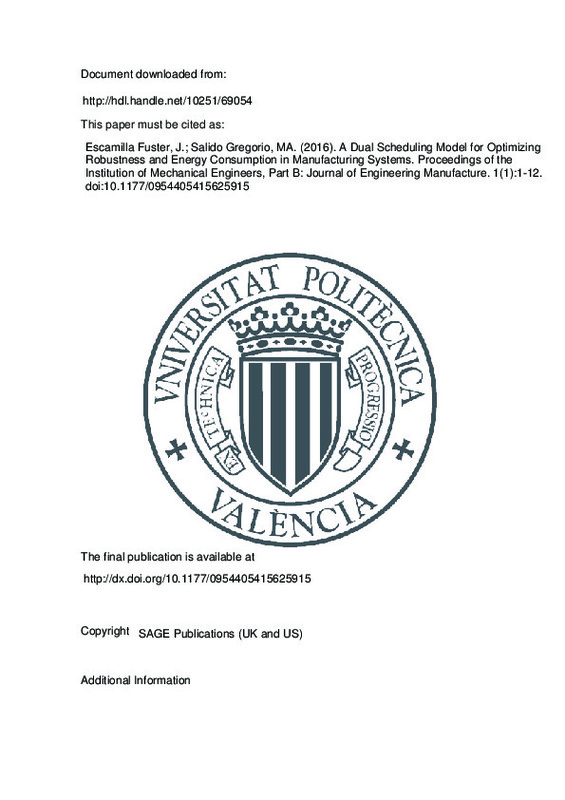JavaScript is disabled for your browser. Some features of this site may not work without it.
Buscar en RiuNet
Listar
Mi cuenta
Estadísticas
Ayuda RiuNet
Admin. UPV
A Dual Scheduling Model for Optimizing Robustness and Energy Consumption in Manufacturing Systems
Mostrar el registro completo del ítem
Escamilla Fuster, J.; Salido Gregorio, MA. (2016). A Dual Scheduling Model for Optimizing Robustness and Energy Consumption in Manufacturing Systems. Proceedings of the Institution of Mechanical Engineers, Part B: Journal of Engineering Manufacture. 1(1):1-12. https://doi.org/10.1177/0954405415625915
Por favor, use este identificador para citar o enlazar este ítem: http://hdl.handle.net/10251/69054
Ficheros en el ítem
Metadatos del ítem
| Título: | A Dual Scheduling Model for Optimizing Robustness and Energy Consumption in Manufacturing Systems | |
| Autor: | Escamilla Fuster, Joan | |
| Entidad UPV: |
|
|
| Fecha difusión: |
|
|
| Resumen: |
[EN] Manufacturing systems involve a huge number of combinatorial problems that must be optimized in an efficient way. One
of these problems is related to task scheduling problems. These problems are NP-hard, so most of ...[+]
|
|
| Palabras clave: |
|
|
| Derechos de uso: | Reserva de todos los derechos | |
| Fuente: |
|
|
| DOI: |
|
|
| Editorial: |
|
|
| Versión del editor: | http://dx.doi.org/10.1177/0954405415625915 | |
| Código del Proyecto: |
|
|
| Agradecimientos: |
The author(s) disclosed receipt of the following financial support for the research, authorship, and/or publication of this article: This research has been supported by the Spanish Government under research project ...[+]
|
|
| Tipo: |
|







![[Cerrado]](/themes/UPV/images/candado.png)


